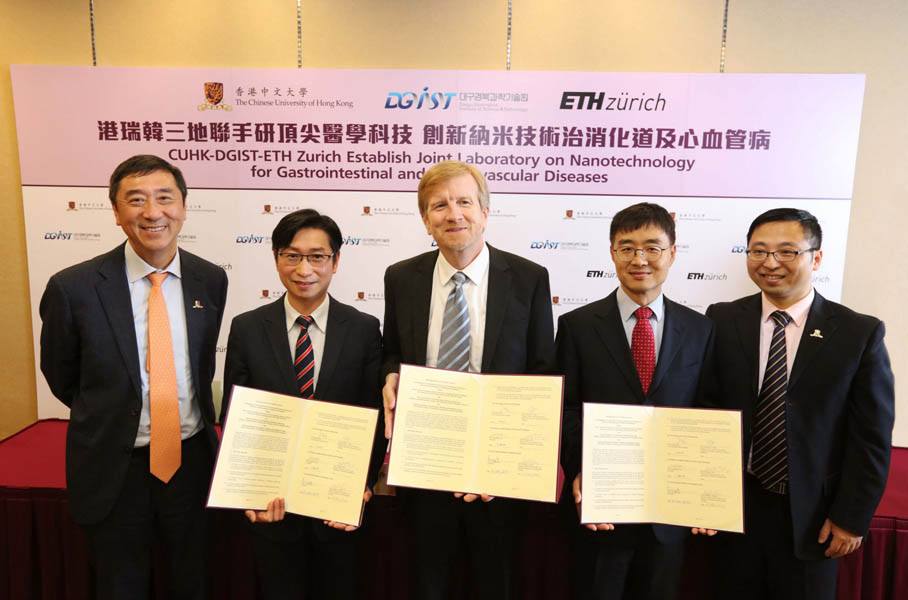
The Chinese University of Hong Kong (CUHK), Daegu Gyeongbuk Institute of Science and Technology (DGIST), South Korea, and the Swiss Federal Institute of Technology Zurich (ETH Zurich), Switzerland recently established the CUHK-DGIST-ETH Zurich Joint Research Laboratory on Innovative Nanotechnology for Medicine and Healthcare (Joint Lab) to promote the research and development of innovative technologies, including micro-/nano-robotics and other nano-medical technologies, for the diagnosis and treatment of gastrointestinal (GI) and cardiovascular (CV) diseases.
Prof. Joseph Sung, Vice-Chancellor and President of CUHK, hailed the collaboration and said, ‘DGIST and ETH Zurich are both renowned globally of their leading roles in the advancement of science and technology, particularly in the innovative micro-robotics and nano-technology area. Together with CUHK’s strong foundation of clinical researches and its dedication to the development of healthcare innovation and biomedical engineering, we envision a tripartite collaboration in which we will capitalize on each other’s strengths and expertise and work out some very innovative solutions for both GI and CV. Our ultimate goal is to meet the unmet needs and better treat GI and CV patients worldwide.’
Tripartite collaboration in developing innovative technologies for clinical applications
The Joint Lab carries the mission to promote collaborative research and academic exchange, as well as to accelerate technology transfer for clinical applications and training. Apart from this, the tripartite alliance will serve as a platform for faculty members to share their research progress and for students to acqure research skills and have greater exposure to an international research environment.
The Joint Lab will focus on three research topics, including i) innovative technologies for complete examination of the small intestine, ii) the study of intestinal diseases/conditions which are particularly difficult to diagnose and treat using existing technologies, and iii) innovative technologies for treatment of GI and CV diseases. In practice, the research team will design and develop a magnetic field driven robotic platform with innovative technologies for GI diseases, and develop an innovative magnetic guided endoscope for small intestine check-up which is believed will greatly reduce the time for a complete examination to 30 minutes, half the time needed for a conventional one. In addition, researchers will explore the clinical applications of the magnetic catheter steering system, for treating CV diseases.
For more information on the partnership, please click here.